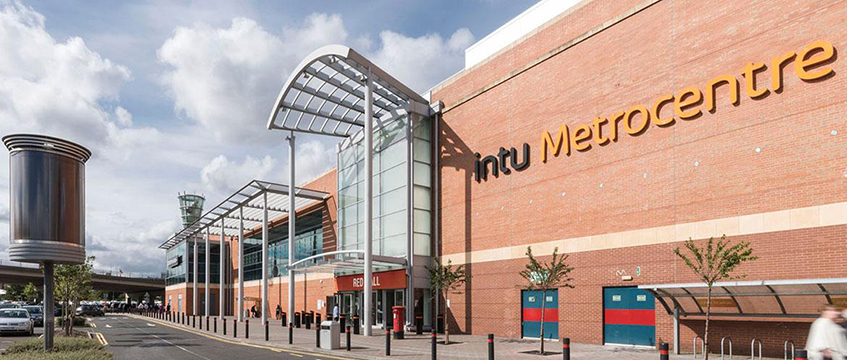Intu is running out of options
With hopes of raising £1.5bn through an equity raising dashed, shopping centre REIT intu’s future now lies in the hands of its lenders.
This week intu, which was raising the cash to try to pay down its £4.7bn debt pile, said that it had cancelled the equity raising plan due to “the current uncertainty in the equity markets and retail property investment markets”.
Chief executive Matthew Roberts said that uncertainty had deterred “a number of potential investors from committing capital within a tight timeframe”.
With hopes of raising £1.5bn through an equity raising dashed, shopping centre REIT intu’s future now lies in the hands of its lenders.
This week intu, which was raising the cash to try to pay down its £4.7bn debt pile, said that it had cancelled the equity raising plan due to “the current uncertainty in the equity markets and retail property investment markets”.
Chief executive Matthew Roberts said that uncertainty had deterred “a number of potential investors from committing capital within a tight timeframe”.
However, he said there was “significant interest in investing at both ‘plc’ and asset-level” during recent discussions with potential investors, away from simply “vanilla” equity deals.
“We will consider all the options open to us to provide additional liquidity,” said Roberts. He added that intu has not ruled out an equity raise in the future, either.
However, market analysts and observers said the shopping centre owner’s future now “lies in the hands of its lenders”.
This is emphasised by the fact that an amendment and extension of its existing £600m revolving credit facility, due to expire in October 2021, depended on intu’s ability to raise up to £1.3bn equity.
Having pushed back reporting its full-year financial results for a second time, to 12 March, the landlord faces renewed pressure to appease the banks, and shareholders.
Intu posted a £2bn valuation loss to £6.6bn in December, reflecting a 22% like-for-like decline in valuations during the year.
Debt-for-equity
A debt-for-equity swap – in which a debt holder would gain an equity position in exchange for cancelling debt – is widely considered to be intu’s most likely path, followed by a patient sell-off of assets.
Some form of this would help resolve a pressing situation but, as analysts from Stifel said, the metrics of this possibility “are unlikely to be pretty”.
“The company states that it is ‘in compliance with its debt covenants’ but we find that while it is not in default, it has breached its tier-one covenants on its SGS facilities and is subject to more restrictive tier-two covenants,” they said in a note. “The Metrocentre debt has also reached a trigger event, with its LTV over 70%.”
Robert Allen, chief financial officer at intu, said the company may also consider talking to banks about waivers, if appropriate. This would allow intu to continue trading as a going concern.
These would, however, be considered on a facility-by-facility basis with the different groups of lenders involved. And it is worth noting that many banks are generally shying away from providing debt to retail properties, given the retail sector’s predicament.
Fire sale
A fire sale – which would involve selling intu’s properties at heavily discounted prices – could also be on the cards, although the extent to which the potential proceeds from these could help alleviate pressure is unclear, if there is no equity raise to accompany a sell-off.
Roberts said that if intu formally embarked on a disposals programme, it would do so in an “orderly process”, adding that it would “review where potential interest is”.
Opportunistic investors might see opportunities in its Merry Hill shopping centre – valued at £587.6m in December, down 24% on the previous year – or in the Trafford Centre, valued at £1.7bn (down 22%). Intu has been planning to sell partial stakes in these flagships since last summer.
A rescue
With Brookfield and Hammerson among its previous takeover suitors, will a new buyer emerge to save intu from its problems?
Cash-rich funds or private equity giants with plenty of firepower, such as Blackstone or Brookfield again, might spot an opportunity for a take-private.
John Whittaker, who owns 27.3% of intu through Peel Holdings, might also try to buy the company again in partnership with other investors.
Whittaker’s faith in intu has so far been unshakeable; he has been selling off assets to raise funds, including Peel Ports and Liverpool John Lennon Airport, to back intu’s capital raise.
Could insolvency be on the horizon?
If intu is unable to agree sufficient new terms with its lenders, and its balance sheet does not improve, the risk of tipping into insolvency will become greater.
No matter what, one thing is clear – the REIT will end up looking like a different business when it emerges from its upcoming stakeholder and lender discussions.
Roberts acknowledged the rocky road ahead, but restated his confidence in intu’s senior team: “[We] will face these challenges head on and we will emerge from this difficult period a leaner, fitter and more focused business.”
To send feedback, e-mail pui-guan.man@egi.co.uk or tweet @PuiGuanM or @estatesgazette











